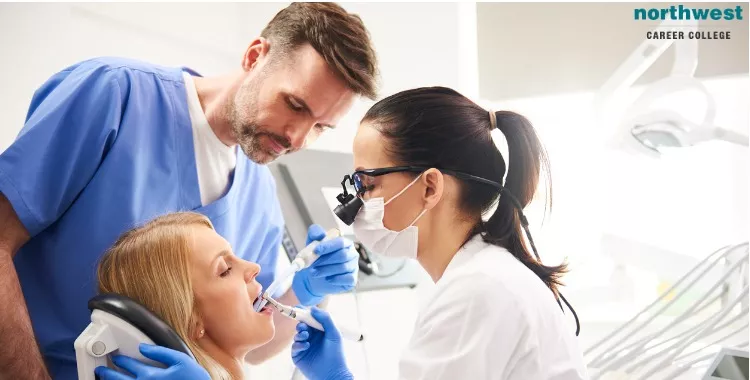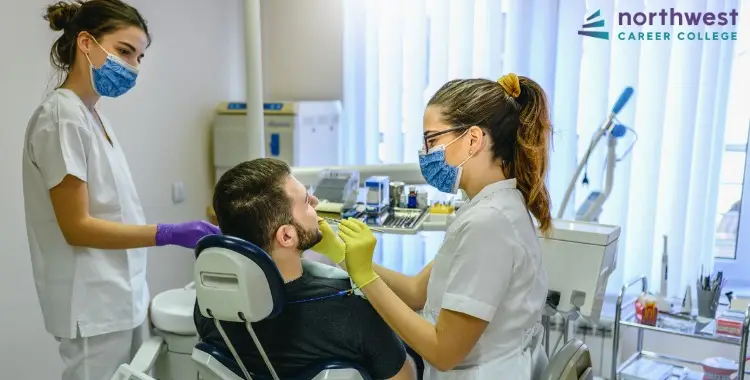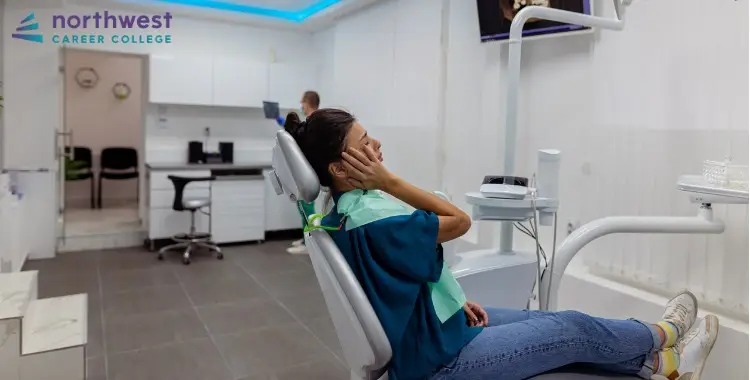Learning Best Practices for Dental Assisting
- Dental Assistant
- April 10, 2025
- 3.5k views
- 2 min read

Many people consider attending dental assistant school in Las Vegas but wonder what they will learn there. Every program has different opinions on the best practices for dental assistant, but there are a few key things each dental assistant must learn to complete our program successfully.
Build Rapport with Patients
You will have to earn patients’ trust fairly quickly – after all, you’ll be putting your hands in their mouths. Northwest Career College promises to train you in all aspects of dental assistant, including this one. We can help you build the trust that will allow you to advise patients about taking control of their dental health. For example, we will help you learn how to spot a passive patient and gently but firmly show them they are able to stay healthy.
Create Synergy
Dental assistants work in an office culture, and because their work is personal, the atmosphere can get tense. Sometimes a fellow assistant may disagree about your treatment or railroad you in order to make a point. At Northwest Career College, we will teach you to be assertive when necessary without making coworkers feel threatened and how to come to a consensuses about individual treatment.
Know Your Field
The staff at Northwest Career College knows the best and most current tools and treatments dental assistants have available. During our program, you will learn how each one works and what individual patients need. For instance, you will learn how to work with nervous patients and tell whether someone might benefit from gentle sedation. We will teach you how to protect patient privacy and make difficult calls regarding tough cases.
Manage Your Time
Time management is critical in dental assistant because you are providing a health service. Before entering the field, you’ll need to know not only how procedures work, but how intensive they are. You’ll learn how to balance your time and work efficiently without seeming cold or distant. You’ll also learn the importance of dental history and how to find important information in patients’ files.



